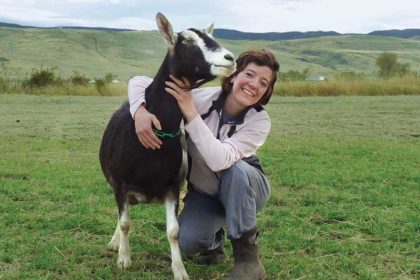
Cheese making is a craft steeped in tradition. But as industry-altering trends emerge — like innovative ingredients, plant-based dairy, sustainable operations — how can cheese creameries compete?
At the Winter Fancy Food Show, heads of two specialty cheese companies in Northern California shared their insight about innovations and trends in specialty cheese.
Consumers are shunning processed cheese for specialty, small-scale, fermented, farmstead brands. Research from Winsight Grocery Business shows that specialty cheese sales are growing. Though sales of dairy-based cheese dipped in 2019, specialty cheese sales are up 2%.
Using Innovative Ingredients
“In cheese, the great thing is that tradition is always up-to-date,” says Manon Servouse, brand manager for Marin French Cheese. Founded in 1865, Marin French Cheese still uses the traditional art of French cheese making, but “we add innovation with inspiration from our local area” in Marin County, California, where Marin’s operations are located.
Marin’s new ingredients include adding jalapeno, truffle and ash coating.
Laura Chenel cheese, meanwhile, is also experimenting with new flavors. The goat cheese brand based in Sonoma County, California adds bacterial cultures to their goat milk, a fermentation process that produces a distinct flavor. Laura Chenel’s newest cheese won a Good Food Award this year. The aged goat cheese, called Crottin, develops a specific rind on the cheese, which aids the cheese’s flavor.
Competing with Plant-Based Cheese
Eric Barthome, CEO of Laura Chenel, says though plant-based cheese is becoming a force in the food industry, plant-based is not their audience.
“The real cheese lovers like cheese made with milk,” Barthome says. “And that’s what we want to do. We’ve been working on the quality of the milk for so long that, yes, there’s room for new products and new cheese made with plant-based products. However, our credo is really to continue to make the best milk to make the best…real goat cheese we can make.”
Plant-based foods are becoming mainstream. U.S. retail sales of plant-based foods grew 11% the past year, according to research by the the Plant Based Food Association and Good Food Institute. Sales of the total plant-based market was $4.5 billion. That figure goes beyond cheese, and includes plant-based milks, cheese, yogurt, ice cream and meat. Plant-based meats are the leading sales driver for plant-based products.
Though plant-based cheese sales are growing, milk-based cheese topped $18 billion in sales in 2019, with specialty cheese sales growing the fastest.
Manon says people are turning to plant-based products because they’re concerned about animal welfare. She noted, at Marin French Cheese, they work with two small creameries to get their milk to monitor the health of the animals. They run small-scale to produce high-quality milk.
Importance of Sustainability
Running an environmentally sustainable creamery is key to successfully operating a modern cheese creamery.
Laura Chenel was sold to the French Triballat family in 2006, and the new leaders decided to build a new creamery in Sonoma County. The new facility reduced the use of natural resources by using water more efficiently, utilizing solar energy, implementing natural lighting and retooling waste management. The new creamery is the only LEED gold certified cheese creamery in the world.
“Very important to us is respect for the environment, respect for tradition and respect for the animals,” Barthome says.
